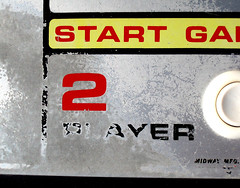For Alberto [Giacometti], intellect is an instrument at the service of sensitivity. In certain areas, however, his sensitivity takes odd forms; for example, his deep scorn for all emotional sloppiness.
But enough: he’s my friend.
Henri Carter-Bresson on his friend, Giocometti
Reading through Henri Carter-Bresson’s The Mind’s Eye has been a little bit like when I saw Harry Callahan at the Art Institute. I spent the whole of the viewing surprised, marveling at what he had made, at the diversity of his eye, gasping, quietly to myself, recognizing -- resonating – with something unlike anything I had ever seen.
That was somehow entirely familiar.
But that’s how these things happen when we find something that reminds of us things we’ve forgotten. Or didn’t know that we knew.
I’m not going to subject you to all of the little revelations that I’ve stumbled on in this wonderful collection of writings. But there’s something lovely about the last section, Part Three, that should be noticed. It’s called On Photographers and Friends.
Each chapter concerns a friend. Some are photographers. All are artists.
There’s such tenderness in these pages, and admiration. Bresson’s friends include Alberto Giacometti, Ernst Haas, Robert Doisneau, Robert Capa, André Kertész, Jean Renoir (the filmmaker -- son of the painter) and André Breton. There are others as well. And we learn in reading, as he writes about the friends he loves, and about the art they make, how he admires them, how he loves them, where they resonate on a clear, vibrating chord, and (sometimes) where they diverge.
Reading Bresson I was reminded of a passing remark made to me by a friend. Matter of factly she said: “You can have more than one soul mate, you know.” Maybe I did know: but her saying it lifted a heavy weight. The need to choose: to decide. To put all my chips on Black 22. (She also said: "You don't have to sleep with all of them," which was also an important revelation.)
Reading Vonnegut’s Cat’s Cradle years ago I was struck by a concept he presented – the karass – which describes a group of people who are bound together to get a job done. Working together, connected, like strings in the child’s game of Cat’s Cradle.
I don’t have the book on my shelves so I’m pulling this from memory, and I suspect that my reading of karass may be different from what Vonnegut intended it to be – but still, I’m deeply attached to it.
My karass-mates are my soul mates – there lives between us a quiet recognition of something shared – whether interests, sympathies, qualities or place – and quite frequently, upon meeting them, I’ve recognized them immediately (as I suspect they knew me), although it may have taken some time for that friendship to find its way into the patterns of my days. Sometimes it took years, and absences, before the reunion.
So it struck me last night, with my nose buried in Bresson’s last section, that there is really only this. Because while the world is full of mystery and wonder, and there’s much that I love about my solitude (the place where I spin and think) and about the work that I do -- it’s coming up for air, and finding a friend there, that makes any of it matter at all.
(And here I will stop, for fear of displeasing Giacometti, with my emotional sloppiness.)







2 comments:
karass-mates...It's true isn't it? I can usually tell within seconds of a conversation. I don't know what I'd do without mine.
yes. that's it exactly.
and on a very surprising -- and then, not so surprising -- level, that is exactly what happened on saturday. it was intense. and it was good.
this metaphor just occurred to me. the people we come across in life are threads that, by virtue of their presence, are added to the fabric in the coat we carry around like a cloak. some are lint (get it off); some are buttonholes (there but not-there); and some are pockets, there to bind us within the fabric, within ourselves. finding that karass-ness -- it's like finding a pocket you didn't know you had, but had been there all along.
Post a Comment